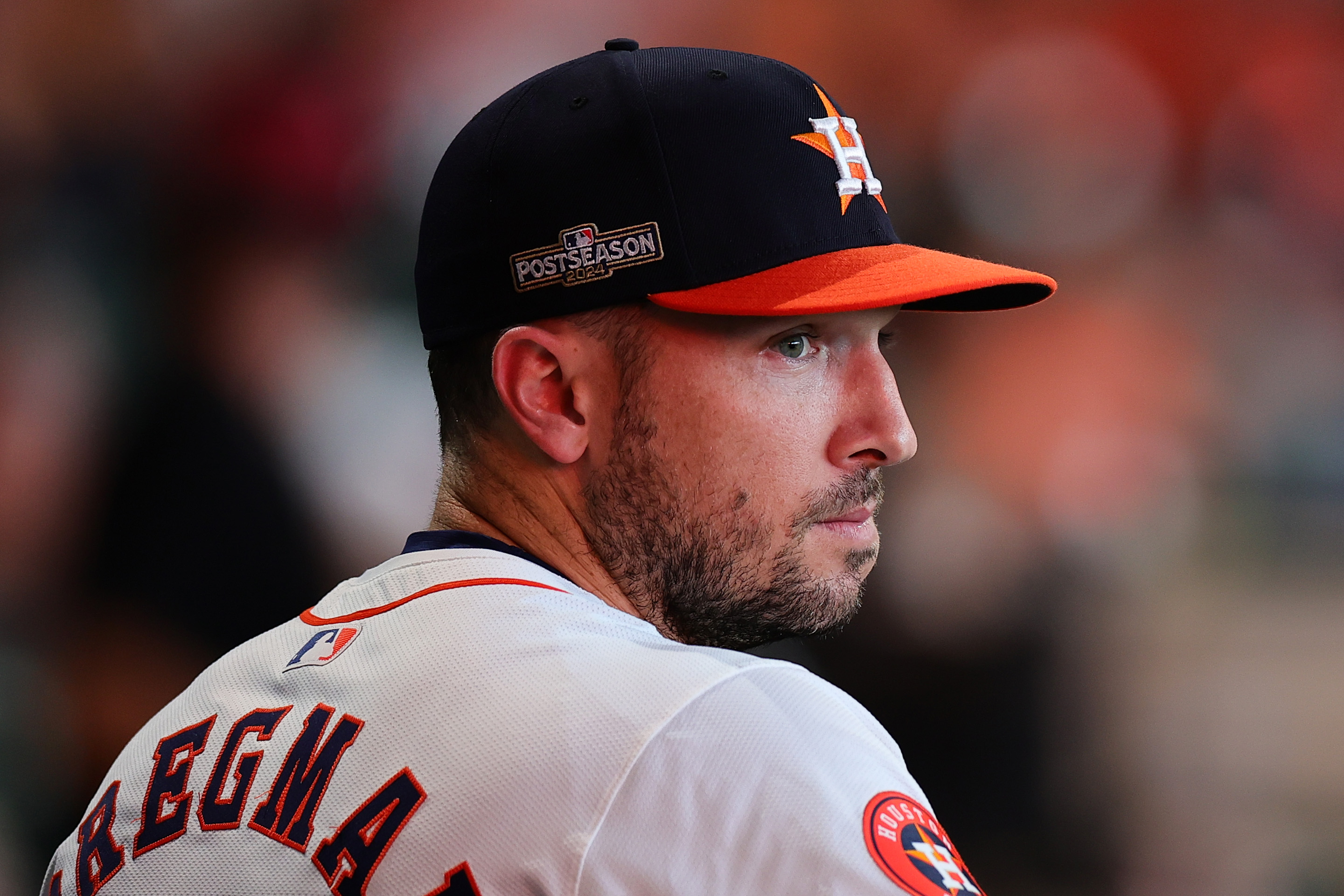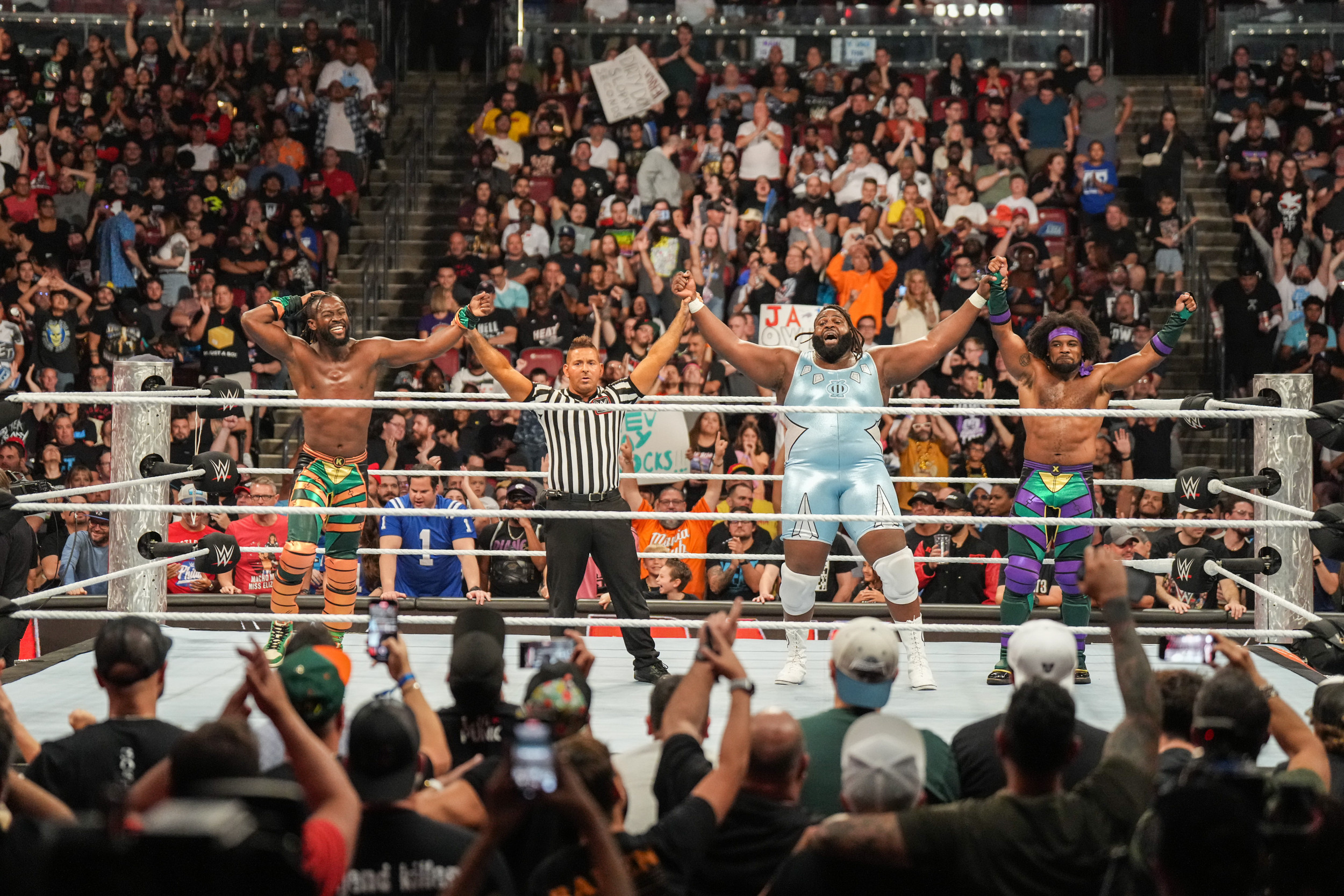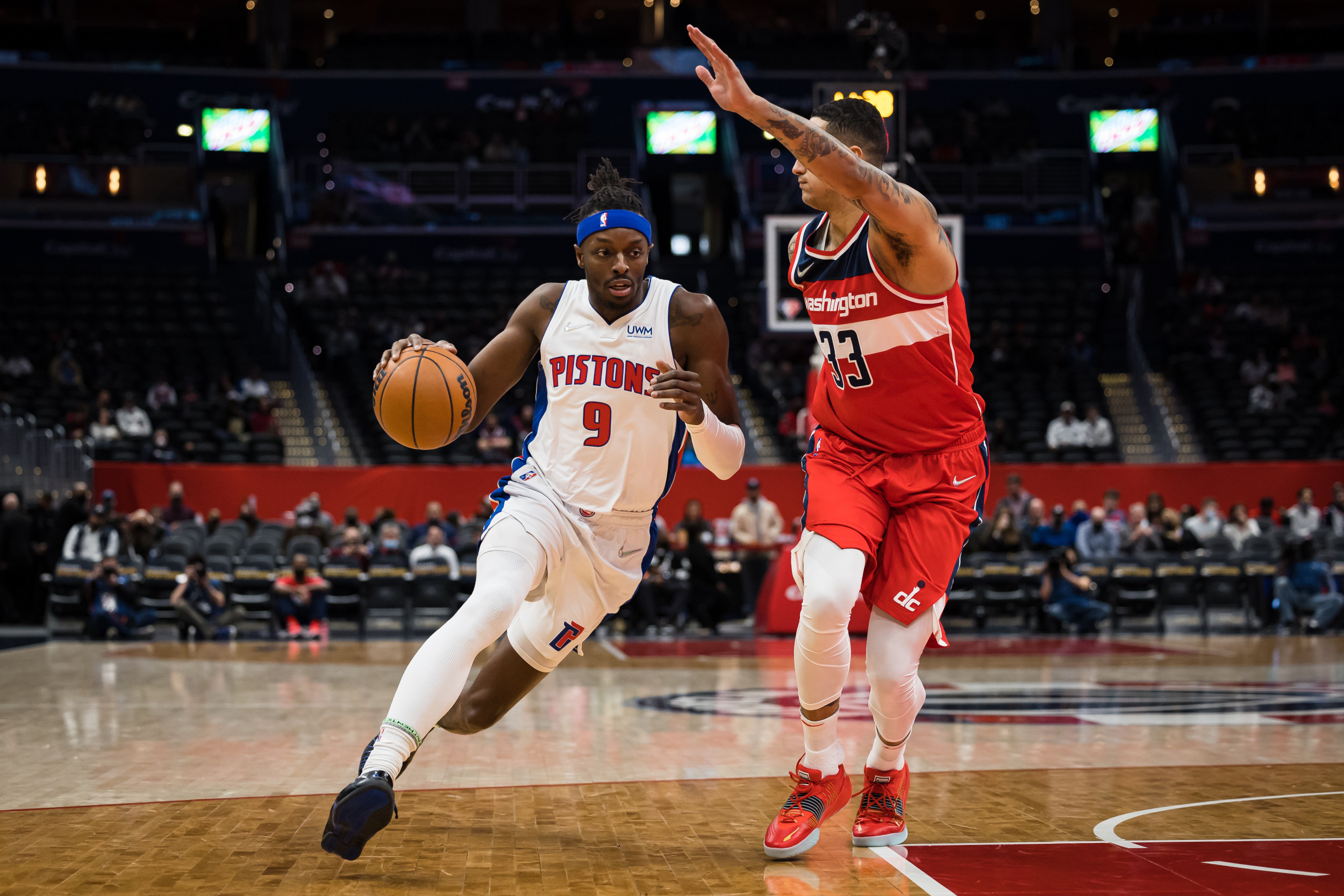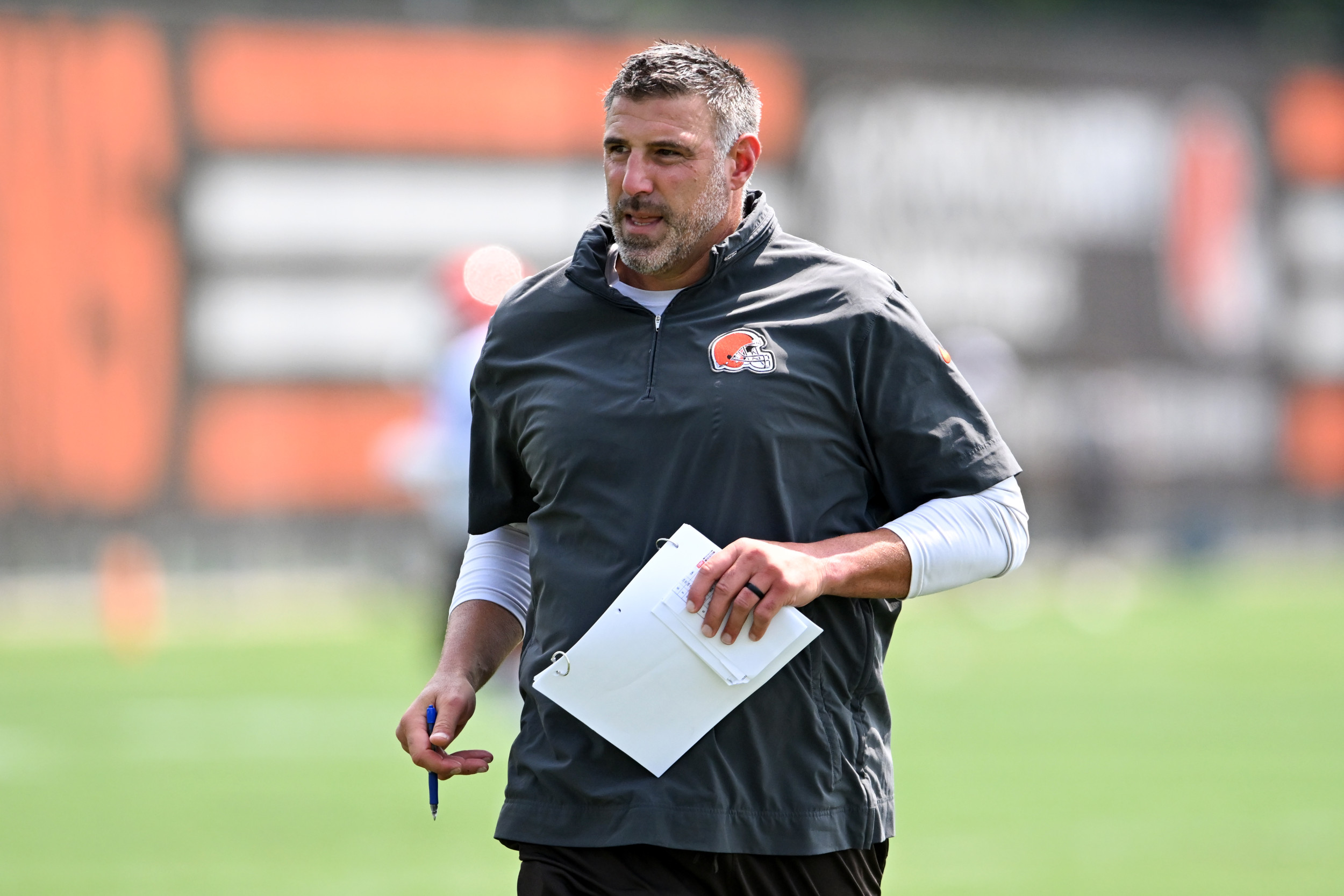After bigging up the TV shows and performances that made the strongest impressions this year, The A.V. Club sets its sights on the finest hours (and half hours) that 2024 had to offer. And those episodes, as it turns out, have a bit of everything: jaw-dropping twists, bloody battles, laugh-out-loud comedy, deceptively deep absurdism, tear-jerking moments, playful homages, and a much-needed spotlight on one Sofia Falcone, among other delights. Here, in chronological order, are the 15 best episodes of television from the past 12 months.
“Green Queen,” The Curse (season 1, episode 10)
How far can a show stretch the limits of its imagination? In the case of The Curse and its finale “Green Queen,” the answer is, apparently, to outer space. Only the intrepid minds of Nathan Fielder and Benny Safdie could’ve come up with this polarizing sendoff. Its absurdity is in tune with the rest of the series’ cringeworthy yet incisive satire, except it’s dialed up to 100 here. Then again, Rachael Ray slyly belittling Whitney (Emma Stone) and Asher (Fielder) should have been a clue that the couple’s life is about to worsen. Fielder’s direction is utterly terrifying as the camera reveals and then revels in gravity reversing course on Asher, with a heavily pregnant Whitney scrambling around their passive house. It’s unexpected, lunatic, and morbid. “Green Queen” tests our patience, raising questions about whether Nala’s curse was real and if the universe is teaching him—quite brutally—how to finally let go. The Curse leaves you guessing, with an ending that feels unforgettable almost a whole year after it aired. [Saloni Gajjar]
“Central,” Expats (season 1, episode 5)
Lulu Wang’s exquisite series Expats has gone largely unnoticed despite its excellent ensemble, cinematography, setting, and social commentary. And no other episode solidifies these strengths better than “Central,” which goes on for a whopping 97 minutes. Each second of that lengthy runtime is justified though, with writer-director Wang filling it with vivid imagery and details to paint a picture of Hong Kong recovering after a typhoon. Also recovering from the disaster’s chaos are the show’s supporting characters, who get a welcome and hearty spotlight here. Expats peels back the day-to-day lives and layers of the foreign domestic house helpers working for their wealthy employers (played by Nicole Kidman and Sarayu Blue). Their hardships, joys, family lives, and community are brought to life by actors like Ruby Ruiz and Amelyn Pardenilla, helping land the installment’s emotional gut punch. [Saloni Gajjar]
“III Sommerso,” Ripley (season 1, episode 3)
For those just getting acquainted with Ripley, episode three, “Sommerso,” reveals the extent of Tom Ripley’s (Andrew Scott) talents when he and the object of his obsession, Dickie (Johnny Flynn), go boating. They leave Atrani’s crumbling architecture for the vast expanse of the Tyrrhenian Sea, where Tom kills Dickie, tightening the tension Steven Zallian sustains over the next five episodes. But first, Tom has to dump the body, extinguish a fire, and regain control of the boat in an overwhelming sequence of mishaps that reveal a simple truth: Crimes are easy, but getting away with them is another story. Like the rest of the series, the scene benefits from Robert Elswit’s bold black-and-white cinematography, which marries beautifully with the seamless digital effects. Ripley is a masterpiece of style and suspense, but it’s in “Sommerso” that it stakes its claim as one of the year’s best shows. For Ripley and the audience, there’s no going back. [Matt Schimkowitz]
“Remember It,” X-Men ’97 (season 1, episode 5)
Up until its season-one midpoint, Disney+’s X-Men ’97 is a fun time. It elicits nostalgia (and sprinkles in some fan service) with its theme song, animation, and storylines. And then “Remember It” rolls around to make it clear that this reboot means business, the Omega Threat Level kind. It kickstarts the impactful Genosha-set suspense, using its mutants-versus-humans war to make surprisingly incisive commentary about politics. With this, X-Men ‘97 matures from a reminder of a childhood-favorite Saturday-morning cartoon into an unmissable event. The thoughtfully mapped-out half-hour already feels moving with its love triangles (Rogue/Magneto/Gambit and Jean/Scott/Madelyne). Then, the rug pulls out from under everyone when their stories connect, thanks to Cable’s warning, for a brutal, heartbreaking ending. [Saloni Gajjar]
“Crimson Sky,” Shōgun (season 1, episode 9)
All 10 episodes of Shōgun season one are masterful (no wonder it’s The A.V. Club’s TV show of the year). But the penultimate outing intertwines the adaptation’s themes of love and sacrifice the most beautifully. Yes, Shōgun is about the fighting prowess of lords and warriors as they battle for leadership, but it’s also about self-identity and relationships amid strife. Mariko represents this extremely human, grounded aspect of the show in “Crimson Sky,” which adeptly deals with her death. More importantly, it also celebrates her life in nuanced ways, letting her reckon with her desires and dreams and why she’s okay with giving it all up. It’s a testament to Shōgun’s entire team, and, of course, Anna Sawai, that her character’s end feels like a shattering loss in an hour that is already edge-of-your-seat tense. [Saloni Gajjar]
“The Future Of L.A.,” John Mulaney Presents: Everybody’s In L.A. (episode 6)
Remember chaos? It was a regular feature of late-night television when after-midnight programming leaned into the “nobody’s watching” energy Conan O’Brien and David Letterman tapped into. In that regard, John Mulaney Presents: Everybody’s In L.A. is a revelation. Perhaps the most daring and original late-night show of recent memory, Mulaney’s project broke format and found the funny, combining public-access TV, McLaughlin Group-style roundtables, and sketch comedy into a strange metaphor for the city everybody is in. It brought something that felt live and dangerous, particularly in its off-the-rails final episode, “The Future Of L.A.” Segments like “Finding Flea” and an impromptu call from Mayor Karen Bass revealed the precarity of the endeavor, pushing the silliness and surreality of Richard Kind dating a delivery robot against the expectations of a late-night show. With an anxious Mulaney at the helm, this last episode brings it all back home. They find Flea, and the concrete jungle of L.A. rests once again. [Matt Schimkowitz]
“I Could Not Prevent It,” Interview With The Vampire (season 2, episode 7)
The beauty of AMC’s Interview With The Vampire lies in how it takes Anne Rice’s work and molds it into its own fantastical, explicitly queer, and heartbreaking story. So knowing Claudia’s (Delainey Hayles) fate is sealed doesn’t make her execution any less miserable. On the contrary, “I Could Not Prevent It” builds up to that moment with tortuous agony in typical IWTV fashion, complete with melodrama, extravagance, and heightened emotions that still pierce through the heart. The penultimate hour uses Claudia, Louis (Jacob Anderson), and Madeleine’s (Roxane Duran) trial to bring back Lestat (Sam Reid), placing all four of them on the Théâtre des Vampires stage befor a gape-mouthed audience. And the writing smartly makes us question Louis’ narrations about his lover while finding the most damning, enraging way to bid Claudia adieu. “I Could Not Prevent It” solidifies IWTV‘s ability to be electric and tragic at the same time. [Saloni Gajjar]
“Napkins,” The Bear (season 3, episode 6)
Every season of The Bear has that one episode that seems to break through to the wider culture, the kind that leapfrogs from excited critical discussions to chats with friends at the bar to family functions with folks who you didn’t think had a Hulu account. In the show’s first batch, it was the everything’s-melting down oner “Review”; in the second, that Richie redemption story “Forks.” And in the series’ latest, that distinction went to “Napkins,” the days-in-the-life, tick-tock spotlight on Tina (Liza Colón-Zayas, who deservedly nabbed an Emmy two months back) as she loses her job of 15 years at the Long Grove Confectionery and hustles to find another one, eventually being broken by a particularly shitty twentysomething receptionist. “I don’t need to be inspired; I don’t need to make magic,” Tina confides to Mikey (Jon Bernthal) at The Beef, where she ducked inside to wait for her bus to arrive, as the two share a kind of mini therapy session the way that only strangers can, with the show leaning into the exhausted empathy that’s at its heart. [Tim Lowery]
“Looking4Twinks2S**k,” Fantasmas (season 1, episode 4)
Any episode that boasts the title “Looking4Twinks2S**k” would merit a mention for the ballsiness of such a provocation. Yet that sequence—where a middle-aged man is trying to lure twinks into his house to feed the wishes of an evil Pomeranian who’s been imprisoned in a portrait—isn’t even the funniest bit in the standout installment from Julio Torres’ sly and inventive Fantasmas. Set amid the increasingly arcane troubles ailing Julio (played by Torres), who needs to gain employment to prove he’s an exception and thus get the coveted ID Card all dwellers in this surrealist version of New York City are required to carry, this episode makes the most out of Torres’ absurdist, dissociative storytelling. Tackling everything from superhero fan culture and corporatespeak to the gig economy and identity politics with aplomb—not to mention with sight gags galore—this one cements Torres as one of the best TV auteurs working today. [Manuel Betancourt]
“The Red Dragon And The Gold,” House Of The Dragon (season 2, episode 4)
House Of The Dragon’s second season was contentious, with seemingly half of its viewers in support of its luxurious pacing and the other complaining about it. But not even the hardcore haters can deny the thrill of “The Red Dragon And The Gold.” Featuring a game-changing battle with particularly deft direction, key character moments, and, of course, a good dose of dragons, it has the vibe of a Game Of Thrones penultimate episode. (Is the shot of Vhagar flapping her wings as she joins the war zone HOTD’s coolest one yet?) Eve Best takes full advantage of her final hour to deliver a heart-rending performance, sending The Queen Who Never Was into combat with might. There’s a reason Princess Rhaenys Targaryen’s attempt to defend Rook’s Rest goes down in history after all. She doesn’t give up till her fiery end, fighting Team Green’s dragon-riders for her cause, even if it means going down for it. R.I.P. to sweet Meleys, too. [Saloni Gajjar]
“How To Survive A Storm,” Evil (season 4, episode 10)
It’s hard to pick only one episode from the phenomenal final batch of Evil. Why this one? It’s when the storm that had been on the horizon the entire season finally unleashes its fury. As wind and rain batter the sound design, so many plot points converge in an episode that blends humor, heart, and horror (the elements that define this show). We get a final sacrifice from Sheryl (Christine Lahti) that’s remarkably moving, some hysterical footage of an awkward teen version of Leland (Michael Emerson), an ordinary-looking businessman who literally peels off his skin to reveal a demon, and one of the most perfectly delivered and moving exchanges between our two star-crossed lovers in the entire run of this amazing genre-buster. “I wish I had two lives,” says David. “One for God, and one for you.” Kristen’s response couldn’t be better: “I wish I had two lives—both of them for you.” If that doesn’t move you, you might be evil, too. [Brian Tallerico]
“Nikki Beach, Or: So Many Ways To Lose,” Industry (season 3, episode 6)
In a stellar third season that found HBO’s Industry achieving sublime levels of excellence from episode to episode, none hit harder than this flashback-heavy entry where the fate of one Charles Hanani (Yasmin’s father) was finally brought to light. And while the shocking revelation of how much Yas (Marisa Abela) was responsible for her father’s death was enough to make this an all-timer, the many machinations that were then put into place to set up the friendly brawl between Harper (Myha’la) and Yasmin (“Everyone deserves better than the way you treat people”) and the professional one between Harper and Eric (Ken Leung) (“You listen to me, you little fucking cunt”) were things of cruel, craven beauty. It’s the kind we’ve come to expect from this high-wire act of an indictment of a capitalist system that finds time to be both bruisingly wounding and cuttingly brutal—and also, of course, wildly entertaining. [Manuel Betancourt]
“Chapter Thirteen,” Pachinko (season 2, episode 5)
It’s alarming that Pachinko has flown under the radar despite easily being one of Apple TV+’s best—if not the best—originals to date. Soo Hugh’s adaptation of Min Jin Lee’s sweeping novel continues to be intricate yet expansive in its second season. As it tracks a multigenerational family across Japan and Korea over decades, the show integrates the historical and political events that shaped their immigration journey. And “Chapter Thirteen” perhaps has the most devastating crisis to focus on: America’s atomic bombing of Nagasaki in 1945. The first 15 minutes, displayed stylistically in black and white, opens as the clock ticks down to the bombing, and a quiet, routine day quickly becomes a catastrophe. “Chapter Thirteen” then pushes forward in time to 1950, choosing also to dwell on how this tragedy has impacted Sunja’s (Minha Kim) loved ones and how they continue to survive. Yet despite all the tragedy, Pachinko, as it always does, finds hope in the toughest of times. [Saloni Gajjar]
“Cent’Anni,” The Penguin (season 1, episode 4)
The Penguin works best when it’s not as much about The Penguin (sorry to the talented Colin Farrell and his prosthetics). Instead, HBO’s The Batman spin-off finds its glory in Cristin Milioti drilling down into Sofia Falcone’s pathos. While the first three episodes introduce her as Gotham’s next scary villainess, “Cent’Anni” digs into what turned Sofia into a vengeance-fueled killer who wants to take out anyone who wronged her, including her former driver, Oz Cobb. The episode is packed with classic Mafia family shenanigans, grisly prison torture, and violent betrayals, but it sticks the landing more because of its character work. Sofia’s transformation from a one-dimensional figure to an icy mastermind is enthralling and it reveals how she became a woman scarred and scorned by her loved ones. Milioti chews the scenery, showing off a side of her talent she hasn’t gotten to in the past. As William Hughes wrote in his recap, this is her Emmy reel. [Saloni Gajjar]
“Come Out And Play,” What We Do In The Shadows (season 6, episode 9)
Great parodies don’t just riff on familiar lines or looks. They also borrow the energy of their source material. But “Come Out And Play” isn’t just a great parody of 1979’s The Warriors: It’s also an excellent episode of What We Do In The Shadows, easily the standout of the show’s final season. Throwing WWDITS‘s exceptional cast into a shared pressure cooker as they flee the vengeful hordes of NYC vamps, the episode serves season-long plot-lines and, more importantly, some of the very best characters on TV, giving each of its stars at least one laugh-out-loud line. With pacing lifted liberally from Walter Hill’s grungy masterpiece and a sense of humor all its own—to say nothing of the standout work done by the show’s costuming and makeup departments as they fill out a truly ludicrous vision of New York vampire culture—it’s a stellar reminder of just how much we’re going to miss this series. [William Hughes]




















 English (US) ·
English (US) ·